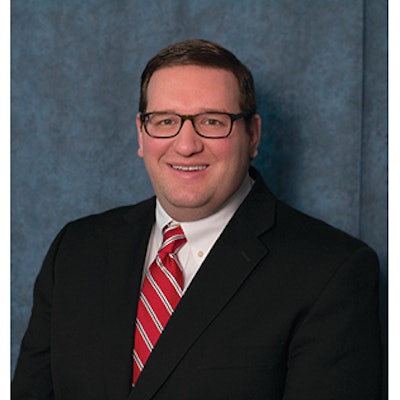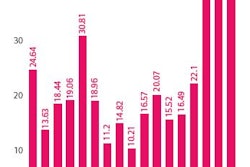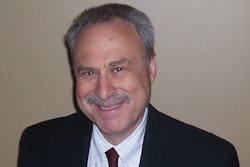
Managing the execution of a food, consumer product or drug recall is never an easy feat. However, the challenges grow more complicated in the global economy. To help manufacturers and supply chain professionals alike better navigate the complexities of recall execution, we analyzed a number of factors contributing to the industry’s challenges in our fourth quarter 2013 ExpertRECALL Index.
The report found that the final months of the year saw surges in nationwide recalls, international events and numerous large-scale recalls, even though the overall number of events was down from prior quarters. This phenomenon, which we termed “recall sprawl,” underscores that the impact of a recall cannot be measured by the numbers alone. Key highlights of the fourth quarter ExpertRECALL Index include:
- Nationwide events. 81 percent of pharmaceutical recalls affected consumers across the U.S.—the largest number of nationwide recalls tracked in the last seven quarters.
- International expansion. 35 percent of pharmaceutical, medical device and food recalls affected at least two countries—a trend that increased by 12 percent over the last six months.
- Large-scale events. The Food and Drug Administration (FDA) recalled over 10.6 million units of food, representing a 52 percent increase from the prior quarter.
In this environment of “recall sprawl,” it’s critical that manufacturers and supply chain professionals understand all of the elements that contribute to the industry’s complexity. Organizations that are not prepared to address the unique requirements each factor brings risk consumer safety, brand reputation and financial liability. Before we discuss how companies can meet these challenges, let’s examine the index findings in greater detail.
Medical Device Recalls
There were 331 medical device recalls in the fourth quarter of 2013, down 20 percent from the third quarter. In addition, the industry experienced the lowest number of recalled units in seven quarters. Despite these decreases, medical device recalls reflect the broader trend of increased complexity. 76 percent of events impacted consumers nationwide and nearly half of the recalls affected at least two countries. Of these international recalls, 70 percent affected European countries, and approximately 40 percent affected the Asia Pacific and/or Australia/New Zealand regions.
Pharmaceutical Recalls
The number of documented pharmaceutical recalls dropped by 21 percent from the same quarter of 2012. This might imply that the challenges of recall management within the pharmaceutical industry are decreasing. The downward trajectory is deceiving, however, as the fourth quarter of 2013 saw an explosion of activity related to geographic reach. As mentioned above, 81 percent of recalls in this category affected consumers nationwide.
Not only is this trend growing, it’s growing rapidly. Nationwide recalls in the fourth quarter increased from the prior quarter by 8 percent and were up from the second quarter of the year by 32 percent. The number of global recalls in the pharmaceutical industry also increased, growing by 14 percent from the third quarter of the year.
Consumer Product Recalls
The number of affected units is another factor that impacts recall execution, as evidenced by the recalls initiated by the Consumer Product Safety Commission (CPSC) in the fourth quarter. The final months of 2013 saw 69 CPSC recalls, the second lowest number of recalls experienced in this category over the last seven quarters. However, the quantity of recalled units increased exponentially, up 292 percent from the prior quarter. This underscores that manufacturers must have surge capacity in order to efficiently handle the challenges of such large-scale events.
Food Recalls
Food products recalled in the fourth quarter highlight how the size and scope of a recall event contribute to the industry’s complexity. The amount of food recalls documented by the FDA dropped by 47 percent from the prior quarter, however, as mentioned above, the amount of units recalled increased substantially. The FDA recalled more than 10.6 million pounds of food, representing a 52 percent increase from the third quarter of the year. Three large-scale events of more than one million units each contributed to this growth in unit amounts.
Recalls initiated by the U.S. Department of Agriculture (USDA) in the fourth quarter reflect a similar trend. While there were just 19 recalls in the fourth quarter, the amount of pounds recalled nearly doubled when compared to data from the first months of 2013. During the latter period, approximately 450,000 pounds of food were recalled but, by the fourth quarter, that number surged to more than 860,000. This represents a 91 percent increase in poundage and further demonstrates the challenges of recall management.
Managing Recall Sprawl
The above data points are just a few of the factors contributing to recall sprawl. As international supply chains and distribution networks grow in prevalence and complexity, operating risks and logistics are becoming increasingly difficult to mitigate. The challenge of managing the multitude of variables is compounded by the speed at which today’s supply chain must operate. It’s important that companies not only look to mitigate the risk, but also understand the logistics of global recall management.
Following are just a few considerations for organizations to effectively meet these challenges:
- Ensure surge capacity to quickly scale and manage a geographically complex recall.
- Take into account the number of languages that require translation, both for external communications about the event and for agents staffing call centers to assist affected consumers.
- Determine the logistics of how the affected product should be removed. As part of this, it’s critical that manufacturers ensure traceability of the product in the supply chain.
- Consider how to execute the recall across international borders, and ensure there is a system to manage and report on the status of its effectiveness in real time.
Working with a third-party consultant is one way in which companies can efficiently address these and other elements of global recall management. Recall execution experts can ease the complexity burden by providing the infrastructure and expertise necessary to overcome the challenges of an international event, leaving organizations to focus their time and resources on recovery.
It will be interesting to see what the first quarter 2014 ExpertRECALL Index reveals, but one thing remains certain: Increasing customer demand for faster and cheaper products will only put more pressure on the global supply chain. Under these circumstances, preventing recalls is not only more challenging, but also more important than ever.
















